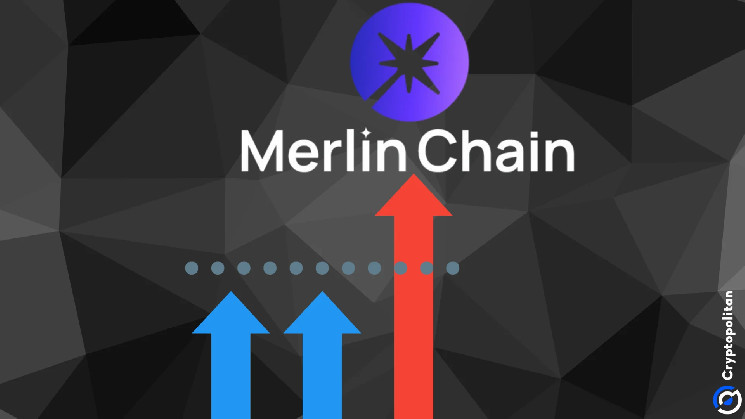Merlin is leading Bitcoin's Layer 2 (L2) chains in terms of BTC deposits and is moving towards becoming a more decentralized chain with the use of zero-knowledge proofs. Despite its success in terms of locked BTC, the native MERL token has not seen significant price increases. Stacks, another prominent protocol, has reported 3,242 BTC in deposits and incentivizes usage by sharing fees with depositors. L2 projects aim to attract BTC owners and provide larger ecosystems with additional activities. Merlin Chain has partnered with Particle Network and allows the usage of native BTC wallets on other EVM-compatible networks. Merlin also offers a decentralized exchange (DEX) and has accrued around $24M in liquidity. The future plan for Merlin Chain is to offer full zero-knowledge proofs. Bitcoin's L2 projects have faced challenges as they are still niche and not well-defined, with concerns about their consensus mechanism and centralization. Ethereum's L2 has seen faster growth due to rewards and airdrop promises. Bitcoin L2 tokens currently have a market cap of $6.67B and are considered undervalued. Internet Computer (ICP) has seen success after rebranding itself as a Bitcoin L2, attracting regular fees and speculation for future growth. L2 chains like Bitlayer aim to build their networks first and then expand their app space. The activity and user count of L2 chains do not solely rely on the number of BTC deposited, with some protocols growing based on well-used routes. Interest in BTC staking remains, with Babylon Labs attracting over 23K locked BTC by offering non-custodial staking and promising fees to stakers and validators.
Allegations of Fraud in a Newly Launched Altcoin: Will the Team Airdrop a Massive Airdrop to Itself?
“Diamond Handed” Giant Bitcoin Whale Loses Patience, Sells After 5 Years! His Profit Is Astonishing!
Bitcoin Isn't at a Record Like Gold and S&P 500, but an Overlooked Catalyst Suggests a Coming Change
 Esponel (es)
Esponel (es) Türkçe (tr)
Türkçe (tr) Russian (ru)
Russian (ru) 한국인 (kr)
한국인 (kr) Italiano (it)
Italiano (it) हिंदी (in)
हिंदी (in) عربي (ar)
عربي (ar) Français (fr)
Français (fr) Deutsch (de)
Deutsch (de) 日本 (jp)
日本 (jp) 中国人 (cn)
中国人 (cn)
 Content Editor
( cryptopolitan.com )
Content Editor
( cryptopolitan.com )
